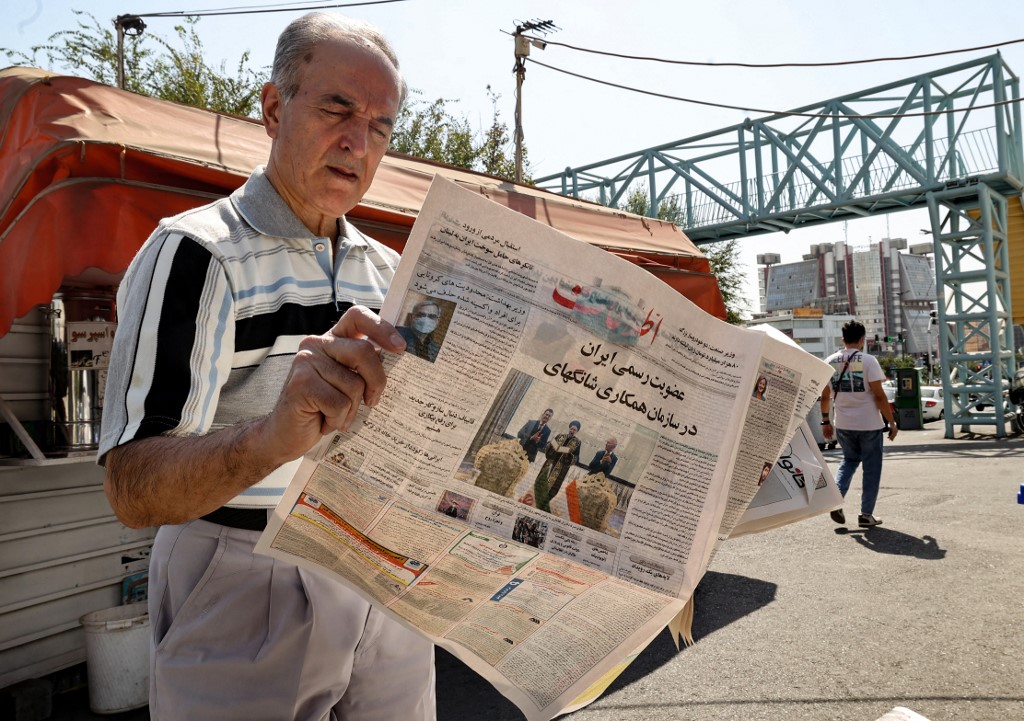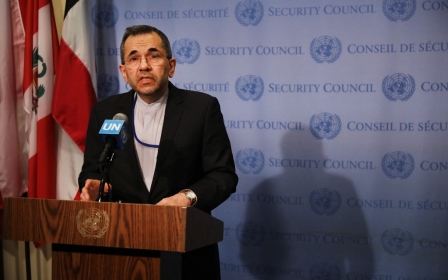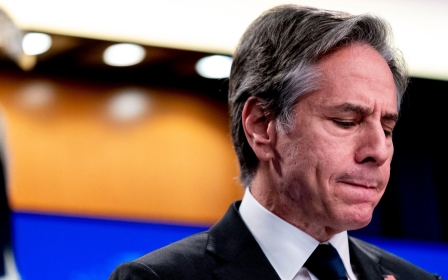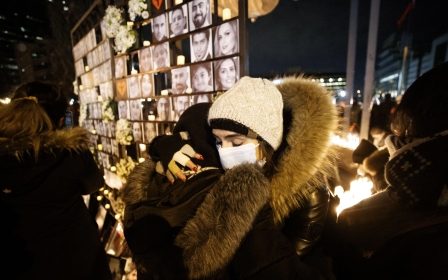Iran-Russia talks: Why Raisi's meeting with Putin is crucial for Iran's future
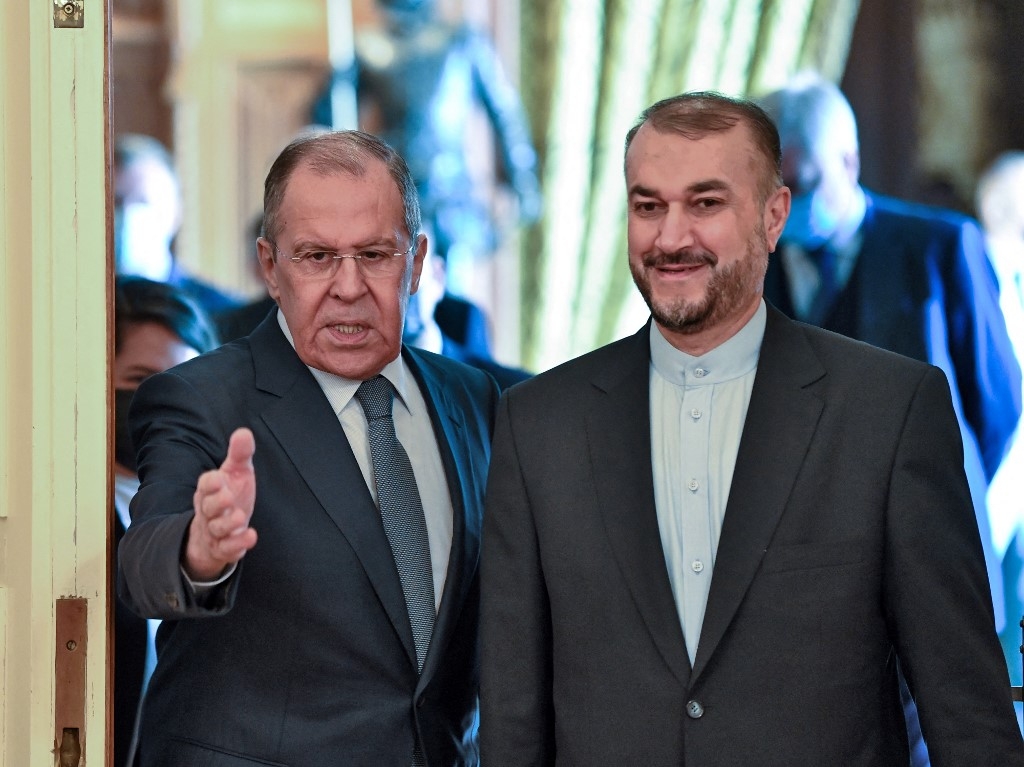
In a meeting this week in Moscow, Iranian President Ebrahim Raisi and Russian President Vladimir Putin will discuss and probably sign a new agreement to develop bilateral relations.
The deal, still being finalised by both parties, could be seen as the fruit of an exchange of letters between Iran's supreme leader, Ayatollah Ali Khamenei, and Putin on the final days of the last Persian year.
According to the Iranian ambassador to Russia, Kazem Jalali, the new document is the updated version of the 2001 treaty The Law on the Basis for Mutual Relations and Principles of Cooperation between the Islamic Republic of Iran and the Russian Federation.
Jalali noted that this document would be different from the Iran-China 25-year deal and, unlike the latter, the Iranian parliament should ratify it as a treaty.
Iran will frame the new agreement as the most significant product of Raisi's visit to Russia and the continuation of a trend that began with Iran's accession to the Shanghai Cooperation Organisation (SCO) at the beginning of his tenure.
Indeed, Iran wants to show that it is not an isolated country and that its diplomatic efforts can still be effective in bringing Tehran some success. But this visit shouldn't be regarded as a mere ceremonial act.
Raisi wouldn't likely go to Russia only to negotiate this deal. The agreement would be a convenient pretext to discuss a wide range of issues and coordinate positions on various bilateral and regional topics, such as reconstruction in Syria, national reconciliation in Afghanistan and the fragile security situation in the South Caucasus.
Although the new agreement will presumably create a new framework for developing bilateral relations, Russo-Iranian relations are defined beyond the contracts, legal terms and the unwritten strategic foundations laid by the two countries' leaders.
Mutual understanding
Since Putin's ascension to power, the history of Russian-Iran relations has evolved around security cooperation, neutralisation of common threats and arms deals. Security has been an area where the two countries usually reach mutual understanding relatively quickly.
As Russia doesn't recognise the US unilateral prolongation of Iran's arms embargo, the acquisition of Russian arms, especially modern jet fighters, is extremely important for Tehran.
Tehran and Moscow are reportedly set to sign a $10bn security and defence cooperation agreement, including the purchase of Su-35 fighters and S-400 missiles. If the deal concludes during the Raisi visit, new Russian offensive and defensive arms would strengthen Tehran's deterrence against the threats posed to it by Israel. It also would be the most notable case in defiance of US sanctions.
As Russia doesn't recognise the US unilateral prolongation of Iran's arms embargo, the acquisition of Russian arms, especially modern jet fighters, is extremely important for Tehran
Although there are some doubts about Iran's ability to afford Russian arms, this wouldn't be a serious obstacle. Iran could offer an oil-for-arms barter deal or make a payment from the oil incomes owed by China, currently unpaid, which total over $20bn.
Nevertheless, economies and trade have remained a problematic field. Russia has never been a considerable stakeholder in Iran’s economy and usually tries to avoid violating the sanctions imposed on Iran. But Moscow is occasionally willing to help Tehran circumvent and undermine western sanctions.
Despite the heightened diplomatic efforts to revive the Joint Comprehensive Plan of Action (JCPOA) nuclear deal, Iran sees the revival of the JCPOA and long-standing lifting of sanctions as separate matters.
Even after the full implementation of the JCPOA, some Iranian sanctions will remain. The other areas of contention between Washington and Tehran, such as Iran's missile programme and its regional influence, would almost certainly cause new sanctions in the future.
With the withdrawal of US troops from Afghanistan and Iraq, and the JCPOA's forthcoming economic benefits for Iran, such as new oil revenues, US regional allies are saying that it is "dangerous" to separate the nuclear deal from Iran's missile programme and its regional outreach.
Key ambitions
Apart from the arms deals, which appear certain, one of Raisi's key ambitions in Moscow - as an indirect but trustworthy envoy of the supreme leader - will be to encourage Putin to bolster bilateral trade and strengthen Russian economic engagement with various sectors of the Iranian economy.
The Islamic Republic hopes that the current heightened tensions between Russia and the West over Ukraine might encourage the Kremlin to reassess its relationship with its primary Middle Eastern "ally" and increase its efforts to help Iran relieve its dire economic situation.
Determining the fate of a promised $5bn Russian loan, supplying some Iranian oil to global markets through Russian companies, devising new oil-for-goods deal, increasing the current record $3bn bilateral trade to $5bn and doing business with national currencies are the most likely demands by the Iranian side.
Iran's deputy foreign minister for economic diplomacy, Mehdi Safari, is the most experienced diplomat in the Raisi team heading to Russia and he will play an effective and influential role in managing the negotiations. Safari has served as Iran's ambassador to China and Russia and believes in a balanced Iranian foreign policy by expanding economic and security ties with Russia and China.
Opportunity for Putin
Meeting with Raisi in Moscow will be an important occasion for Putin, too. The Russian leader needs serious behind-closed-doors talks with the Iranian president on Iran's future nuclear steps, foreign and economic policy directions after possible sanctions relief, and what economic opportunities Iran is ready to offer Russia and vice versa.
Providing Raisi with arms and economic deals presents an opportunity for Putin to repair his country's image in Iranian public opinion. In the past few years, a considerable portion of the public and elite in Iran, including high-ranking IRGC commanders, have been critical of Russia's bilateral and multilateral approach toward Iran.
The latter point needs to be addressed more proactively, with the two sides maximising mutual trust and respect at state level and creating platforms for expanding non-state ties.
In the short term, Raisi will hope his visit to Russia promotes his government's political and social capital.
In the long-term, however, the fulfilment of the new agreement and deals will depend on how much Tehran and Moscow can overcome the intervention of third-party factors - such as sanctions and relations with the West - and set the goals realistically.
The views expressed in this article belong to the author and do not necessarily reflect the editorial policy of Middle East Eye.
Middle East Eye delivers independent and unrivalled coverage and analysis of the Middle East, North Africa and beyond. To learn more about republishing this content and the associated fees, please fill out this form. More about MEE can be found here.



